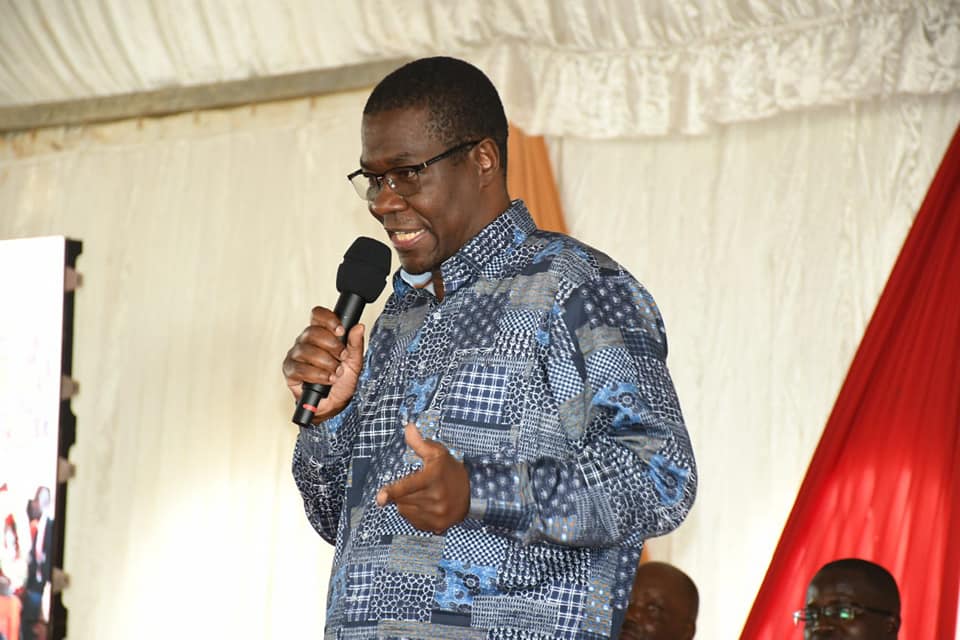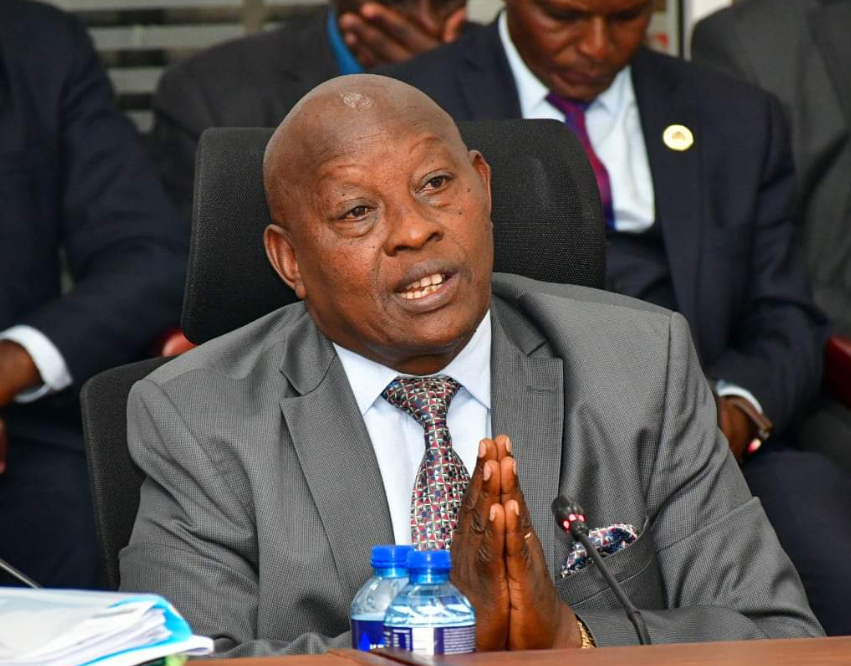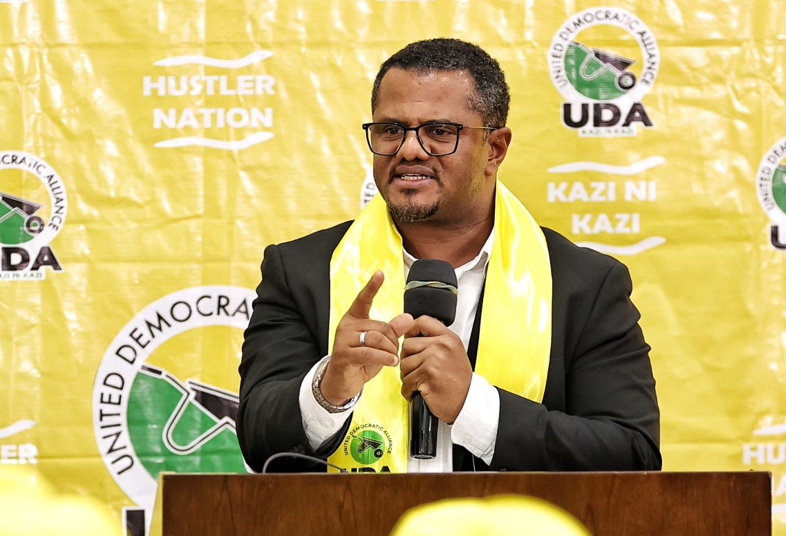Standoff as Azimio rejects government team for IEBC talks

A fresh standoff is looming over the proposed bipartisan talks on how to pick new electoral commissioners after the Azimio la Umoja yesterday rejected some of the legislators picked by Kenya Kwanza to represent it.
The opposition coalition also announced a new round of public protests and meetings after accusing the ruling Kenya Kwanza Alliance of picking a former Azimio-allied legislator to sit on its side of the 14-member talks team.
President William Ruto had chaired a Kenya Kwanza parliamentary group meeting at State House, which came up with a seven-member team to engage their Azimio counterparts in the talks.
The seven are Boni Khalwale (Kakamega Senator), George Murugara (Tharaka MP), Essy Okenyuri (Nominated Senator), Mwengi Mutuse (Kibwezi West MP), Lydia Haika (Woman Rep, Taita Taveta), Hillary Sigei (Bomet Senator) and Adan Keynan (Eldas MP).
The legislators were tasked to engage their counterparts from the Azimio coalition led by Senators Ledama ole Kina (Narok), Edwin Sifuna (Nairobi), Enock Wambua (Makueni) and MPs Millie Odhiambo (Suba North), Amina Mnyazi (Malindi), David Pkosing (Pokot South) and Otiende Amollo (Rarieda).
Bipartisan team
However, no sooner was the Kenya Kwanza list made public than Minority Leader Opiyo Wandayi and Deputy Orange Democratic Movement (ODM) leader Wycliffe Oparanya rejected it outright. One of the grounds for rejection was that Keynan was a member of Jubilee Party, which was allied to Azimio before he shifted allegiance.
One of the issues that Azimio wants discussed is the weakening of political parties through encouraging Opposition legislators to co-operate with the government. By having Keynan in the team, this was seen as undermining that agenda.
However, Kenya Kwanza said that the bipartisan team will only discuss the question of how to appoint new IEBC commissioners. It also asked Azimio leaders to seek a review of election results through the Supreme Court, effectively implying that the issue of whether to open election servers or not was off the table.
In reaction, Oparanya at once announced that Azimio will proceed with weekly public protests, starting in Nairobi, to pile pressure on the government to address the cost of living in the country. The first such protest will be held tomorrow. Oparanya said the opposition will embark on a series of direct engagements with the public through town hall meetings and public barazas.
“We will hold the first town hall meeting in Nairobi on Thursday 13th to be followed by a public baraza at the Kamukunji Grounds on Sunday 16,” Oparanya said in a statement.
The Kenya Kwanza Parliamentary Group had met in morning to chat the way forward following his address to the nation on April 2 that called for formation of a parliamentary team to deal with issues raised by the opposition.
“The PG agreed with the President on the need to govern the country in accordance with the Constitution and the rule of law,” stated the MPs in a statement read by Leader of Majority Kimani Ichung’wah.
However addressing a news conference shortly after the Kenya Kwanza list was unveiled, Wandayi and his deputy, Kathiani MP Robert Mbui, accused Kenya Kwanza of “continuing with bad habits” of holding its PGs at State House.
Taking issue with the Kenya Kwanza list of nominees, Wandayi said; “We have seen that the Kenya Kwanza team has appointed a seven-member committee to join our team, fair enough. We are, however, surprised that those appointed in this team are members of Azimio la Umoja. The Kenya Kwanza team is already demonstrating bad faith.”
They also took issue with Kenya Kwanza’s insistence that the talks be exclusively undertaken by Parliament, and solely on the IEBC selection panel.
“Their position that they will not venture outside the IEBC selection panel will not vary our conditions for the talks. That’s their stand and they are justified because of the excitement they have. We must have talks before talks so as to come up with the terms of reference for the committee and the timeline among others,” said Wandayi.
Mbui wondered what Kenya Kwanza was fearing by failing to address the issues raised by the opposition.
“What is this they are fearing about opening the IEBC servers? They know that if they open the servers the truth will come out,” said the Kathiani MP.
The two claimed Kenya Kwanza wanted the talks to collapse even before they start. Wandayi insisted for the talks to bear fruit, “other talks” must be held outside Parliament to set the terms of reference.
However, the Kenya Kwanza MPs on their part said they will resist any attempts by the opposition to force or blackmail the government to implement the failed policies of the last administration, which, they said, drove the country into an economic mess, including corruption-ridden consumption subsidies, irresponsible borrowing and gross fiscal mismanagement through State capture.
“We particularly support the government’s policy of subsidising production rather than consumption and prudent fiscal management within a framework of managed debt levels,” the Kenya Kwanza legislators said. In re-affirming its commitment to the Constitution and rule of law, the State House meeting directed the team nominated for the talks to strictly adhere to the Constitution and established laws in addressing the re-constitution of the IEBC panel as was communicated by the President during his address to the nation.
“We equally call upon our colleagues in the opposition to adhere to the rule of law and constitutionalism and pursue all issues of concern through established institutions under the Constitution,” they said.
Bipartisan team
Appreciating that the Constitution gives Parliament the mandate of resolving issues that are of concern to the people, the PG concurred with Ruto’s position on a parliamentary bipartisan approach in resolving matters affecting the country.
Yesterday’s meeting cited the role of the opposition in providing oversight over the government but warned against witch-hunt and unnecessary politicking while executing that mandate. The MPs affirmed their support to the efforts by the government on policies geared towards stabilising the economy, lowering the cost of living, creating jobs and incomes for the majority of the people, and ensuring inclusive growth, saying that was the contract the ruling coalition signed with voters.







